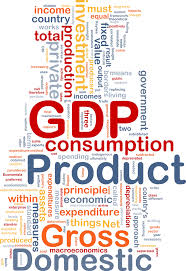This September, millions of young Americans will start college, but at what cost? Each year, the collective student loan debt skyrockets as tuitions continue to…

Our debt-based monetary system conceals a brutal fact: indebtedness to private sources for the acquisition of money is an unnecessary scourge on our economy and…

Updates on new Detroit book, Mayor's austerity policy in Chicago, homeless school children, soaring medical insurance deductibles. Responses to listeners on VW scandal and Pope's…

The study, published in the journal Financial Stability, introduces a new method that allows researchers to estimate the systemic risk that emerge from multiple layers…

Jack examines the big swing in the revised GDP figures for the 2nd quarter, and raises questions about the US Government’s ability to adjust for…

The legitimacy of a given social order rests on the legitimacy of its debts. Even in ancient times this was so. In traditional cultures, debt…

Dr. Richard Smith is an historian specializing in China and its transition to capitalism, and on economics, environmental and ecological issues. He received his doctorate…

Dr. Richard Smith is an historian specializing in China and its transition to capitalism, and on economics, environmental and ecological issues. He received his doctorate…

Puerto Rico’s governor may have said the commonwealth’s debt is unpayable, but that doesn’t mean Puerto Ricans aren’t going to pay for it. Vulture capitalists…

Hedge fund managers and bondholders are pressing the government of Puerto Rico to drive through a series of punishing austerity measures, including dramatic cuts to…
Over the past few months we have been forced to bear witness to a humiliating farce unfolding in Europe. Greece, which was first accepted into…

Bleeding to Debt: As With Detroit, So With Puerto Rico? Puerto Rico is in a “death spiral,” Gov. Alejandro García Padilla has declared, unable to…

